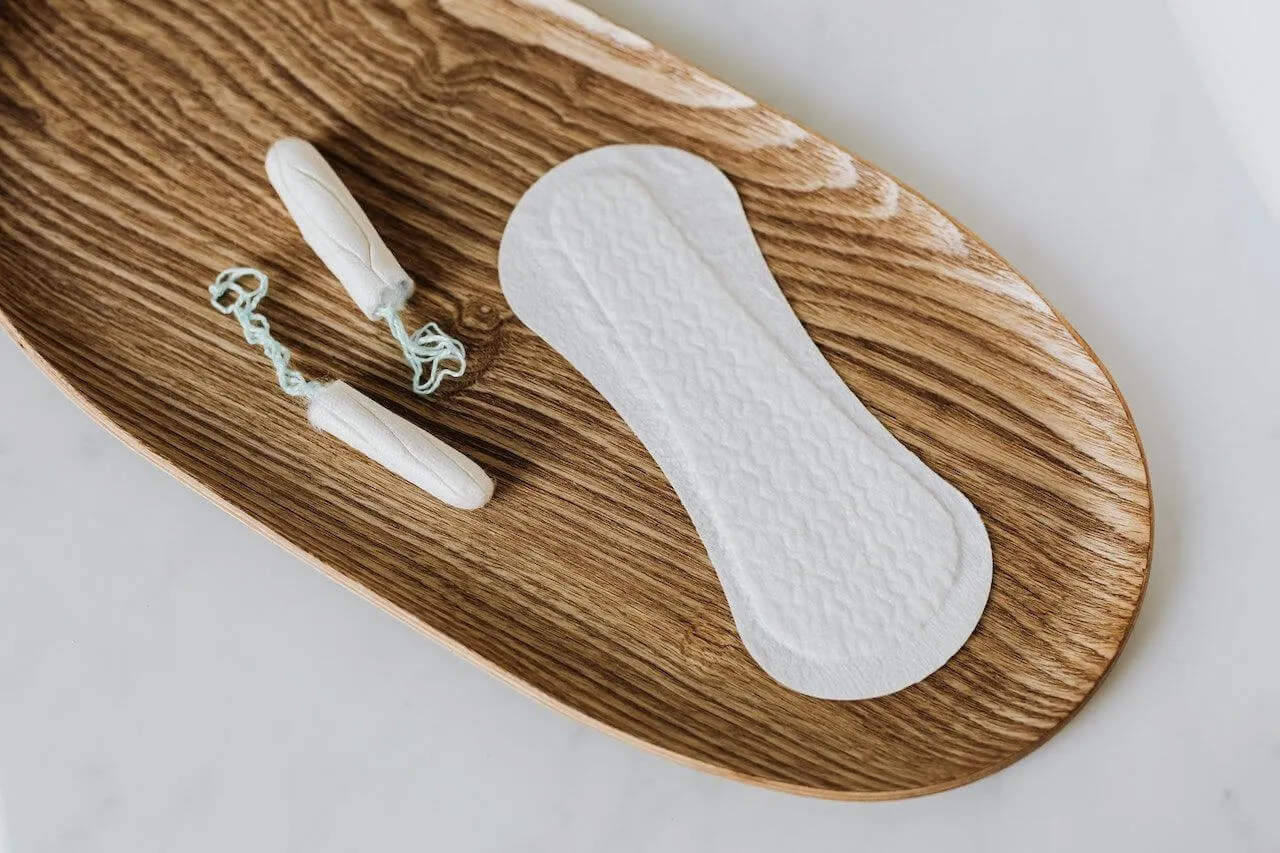The average adult body comprises approximately 60 percent water, meaning adequate hydration is essential for keeping our bodies at their best.1 But did you know that excessive water retention can negatively affect our overall health?
While some people may be concerned about water weight and its effects on their outward appearance, excessive water retention or edema can be linked to more concerning issues. Excess water weight, though harmless in some situations, can be related to specific chronic health concerns. For example, edema can result from heart, liver, and kidney issues and may even exacerbate the problems further.
In this article, we’ll break down the science behind water weight, common lifestyle triggers, and its potential impact when retained in excess. And, of course, we’ll discuss how to lose water weight safely.
{{mid-cta}}
What is Water Weight? Why Should You Lose It?
If you notice your clothes fit a little differently than last night or the number on your scale jumped up unexpectedly, you might be dealing with some water retention. But, no need to panic and no need to start slashing calories.
Our body weight fluctuates daily for several reasons, many of which can be linked to the body’s inclination to hold on to water. While you may not be a fan of the puffiness that accompanies fluid retention, water weight is perfectly normal. In fact, the human body uses its fluid balance as a form of protection against dehydration.
However, monitoring your body’s water balance is critical to ensure that excess fluid buildup doesn’t contribute to chronic medical concerns. Extra water can “sit” on your organs, forcing them to work harder than they should.
For example, if your body is storing extra fluid in the tissues surrounding your heart, your heart has to pump under the excess weight of that fluid. Over time, that puts unnecessary stress on a highly essential organ. And it’s not limited to the heart. Other organs can suffer from chronic excess fluid.
What Causes Water Weight?

Multiple factors, including the following, can cause water retention:
High Sodium Intake
A diet rich in sodium causes the body to retain water to dilute the sodium levels in your system. This increases the fluid in your cells and in your bloodstream.
Sedentary Lifestyle
A sedentary lifestyle is a common culprit for water retention. Sitting or standing still for an extended period causes an unusual amount of fluid to build up in your tissues as gravity pulls blood toward your extremities. Thankfully, movement helps to maintain good blood flow and circulation. So keep moving!
Capillary Damage
Our capillaries transport important nutrients and oxygenated blood to the body’s tissues. However, when our capillaries are damaged, liquid can leak into the gaps between our cells, resulting in water retention.
Poorly Functioning Lymphatic System
The lymphatic system is most known for its role in delivering and reabsorbing lymphatic fluid that contains white blood cells that fight against bacteria in the bloodstream. However, it is also critical in maintaining the body’s fluid balance. A malfunctioning lymphatic system can translate to a disruption in water retention.
Menstrual Changes
Unfortunately, premenstrual syndrome or PMS is attributed as one of the many causes of water weight gain. This is because fluid retention can vary between the phases of a woman’s menstrual cycle. In addition, changes in sex hormones, including progesterone and estrogen, can cause bloating and puffiness in the days leading up to their period.
Medications
Some medications, including drugs for high blood pressure, cancer, and depression, can cause an increase in water weight. Some over-the-counter pain relievers can also increase the amount of water your body retains.
Poor Heart Health
The heart’s pumping mechanism is critical in maintaining proper pressure within our blood vessels. If the heart can’t pump blood properly, it can lead to water retention in the body.
Weak Kidneys
The kidneys are in charge of filtering the blood and supporting the body’s overall fluid balance. If the kidneys aren’t functioning at full strength, they cannot eliminate fluids, sodium, and other wastes, causing the fluid to build up in the body.
6 Ways to Reduce Water Weight
Short of taking diuretic water pills, what can we do to lose excess fluids? Read on to find out how to reduce water weight.
Be Strategic With Your Carbs
Sometimes carbs get a bad rap, but, in reality, our bodies rely on carbohydrates for energy. It’s when we overdo it with carbs that we get ourselves into trouble. This is because when we eat carbohydrates, any energy our bodies don’t need gets stored as glycogen molecules.
And since research shows that every gram of glycogen is stored with at least three grams of water, excess carbohydrate intake can cause a build-up of water weight.2 No need to follow a low-carb diet. Try to choose nutrient-dense carbs and be mindful of your serving sizes.
Get Moving
Physical activity can be an excellent option for those trying to lose water weight fast through natural remedies. Any exercise that causes the body to sweat can help you quickly shed water weight.
Working out increases your circulation and improves blood flow, helping to move water into your muscles to support their growth and recovery. It also helps burn off glycogen energy, which we know can help reduce water weight.
Increase Your Water Intake
It sounds counterintuitive, but our bodies are brilliant machines. For example, if your body is constantly dehydrated, it will fight to retain fluids to prevent water levels from dropping dangerously low.
The National Academies of Sciences, Engineering, and Medicine recommends a daily intake of approximately 3.7 liters of water for men and 2.7 liters for women.3 But, of course, you must adjust your intake to ensure you drink enough water after exercise and on hot days.
Meet Your Potassium Needs
Potassium has many roles in the body, including maintaining intracellular fluid volume. Electrolytes counteract the effects of sodium to prevent fluid from building up while also increasing urine production.4
To support a healthy fluid balance, include potassium-rich foods like bananas, tomatoes, and avocados.
Keep an Eye on Your Salt
Monitoring your salt intake is critical if you’re concerned about water retention. Sodium, a major component of salt, is an electrolyte that the human body needs in small amounts to maintain fluid balance and keep muscles and nerves operating smoothly.5
The body requires a delicate balance of sodium to water. Overeating salt skews the ratio and can result in rapid water retention.
The most recent Dietary Guidelines for Americans recommends limiting your sodium intake to less than 2,300 milligrams daily.6 That’s just one—yep, just one— teaspoon of salt daily. In addition, be mindful of your dietary choices. Avoid processed foods as feasible, limit fast food, and opt for fresh, whole foods when possible.
Consider Taking Magnesium Supplements
Magnesium plays many roles in the human body. It’s involved in hundreds of enzymatic reactions, may help alleviate symptoms of PMS, and can help reduce water retention.
Good sources of magnesium include foods such as nuts, whole grains, leafy green vegetables, and dark chocolate. Not a fan of magnesium-rich foods? It’s also available in supplemental form.
How Long Does It Take to Lose Water Weight?
No two bodies are the same, so the time it takes to lose water weight depends on a few factors. The rate at which we lose our water weight is influenced by how much water we retain, the cause behind the weight gain, and the methods we use to lose it.
For example, if you have one high-sodium meal and then return to your typical, healthy habits, you’ll likely notice water weight loss within a day or two. But if you are retaining water after overindulging for a few weeks, it may take longer.
<p class="pro-tip"><strong>Learn more: </strong> <a href="/blog/acupuncture-for-weight-loss">Does Acupuncture Really Do the Trick for Weight Loss? </a>.</p>
How to Prevent Water Retention

Drink More
Stay hydrated to keep your body from going into protective mode. When your body is dehydrated, it’s more inclined to retain water.
Reduce Carbohydrate Intake
Unused carbohydrates are stored as glycogen, accompanied by multiple water molecules. Therefore, eat carbs in moderation to avoid excess fluid retention.
Exercise
Physical activity is a vital component of a healthy lifestyle. Regarding water retention, exercise helps remove excess fluids through sweat and improves blood flow.
Improve Your Sleep Hygiene
Don’t skimp on your sleep. When we sleep, our bodies efficiently undergo various metabolic processes to keep us running smoothly. These processes use the body’s water, helping maintain proper fluid balance.
Limit Salty Foods
High levels of sodium in the body can cause water retention. Limit processed foods like canned products, chips, crackers, and deli meats. Look for low-sodium options or choose the fresh option when possible.
Maximize Your Supplements
While it’s ideal to meet your nutrition needs through whole foods, sometimes it’s unrealistic. Consider talking with your registered dietitian to design a supplement schedule that meets your needs. You might consider taking electrolytes and vitamins like potassium, magnesium, dandelion herb, and vitamin B6 to help your fluid status.
When Should You Consult a Healthcare Professional?
Water weight is not usually a cause for alarm, but in some cases, it can be a symptom of a severe underlying medical condition. Therefore, even for a mild case of water retention, it is beneficial to consult your medical doctor and registered dietitian nutritionist. Some symptoms that indicate a need for prompt medical care include:
- Frequently swollen body parts.
- Sudden and painful water retention.
- Skin that dimples when pressed upon.
- Shortness of breath or coughing, especially when lying flat.
Using a CGM with Signos: Real-Time Data, Backed by AI
Signos pairs a real-time glucose biosensor with AI trained on tens of millions of data points to deliver personalized, science-backed guidance for weight management and health. See exactly how your body responds, and take action.
Learn how it works. Ready to get started? Join now.
Frequently Asked Questions
What Is Water Weight?
Water weight occurs when fluid collects in your tissues, typically due to lifestyle habits or underlying medical conditions. It’s usually nothing to be concerned about, but discussing unintentional fluid weight gain with your doctor is smart.
What Are the Common Symptoms of Water Retention?
Excess fluid balance can manifest as edema on your extremities, bloating, and puffiness.
Losing water weight can depend on multiple factors.
What’s the Fastest Way to Lose Water Weight?
Adjusting your diet is the fastest way to reduce water retention. Limit your sodium intake and eat carbohydrates in moderation.
How Do You Know if Weight Gain Is Water Weight?
Water weight fluctuates more significantly and rapidly than weight gain from fat. This is because weight changes from fat depend more on calorie intake.
<p class="pro-tip"><strong>Keep reading: </strong> <a href="/blog/fat-loss-vs-weight-loss">Fat Loss vs. Weight Loss: Which One Should You Aim For?</a>.</p>
Topics discussed in this article:
References
- Abraham, T., Ballard, B. D., & Mohiuddin, S. S. (2022, October 3). Physiology, water balance. StatPearls. Retrieved March 19, 2023, from https://www.ncbi.nlm.nih.gov/books/NBK541059/
- Fernández-Elías, V. E., Ortega, J. F., Nelson, R. K., & Mora-Rodriguez, R. (2015). Relationship between muscle water and glycogen recovery after prolonged exercise in the heat in humans. European journal of applied physiology, 115(9), 1919–1926. https://doi.org/10.1007/s00421-015-3175-z
- Report Sets Dietary Intake Levels for Water, Salt, and Potassium To Maintain Health and Reduce Chronic Disease Risk. Nationalacademies.org. (2004, February 11). Retrieved March 18, 2023, from https://www.nationalacademies.org/news/2004/02/report-sets-dietary-intake-levels-for-water-salt-and-potassium-to-maintain-health-and-reduce-chronic-disease-risk
- U.S. Department of Health and Human Services. (2022, June 2). Office of dietary supplements - potassium. NIH Office of Dietary Supplements. Retrieved March 18, 2023, from https://ods.od.nih.gov/factsheets/Potassium-HealthProfessional/
- Center for Food Safety and Applied Nutrition. (2022, February 25). Sodium in your diet. U.S. Food and Drug Administration. Retrieved March 19, 2023, from https://www.fda.gov/food/nutrition-education-resources-materials/sodium-your-diet#:~:text=Sodium%20is%20an%20essential%20nutrient,muscles%20and%20nerves%20running%20smoothly.
- U.S. Department of Agriculture and U.S. Department of Health and Human Services. Dietary Guidelines for Americans, 2020-2025. 9th Edition. December 2020. Available at DietaryGuidelines.gov.




.svg)







.webp)


.svg)
.svg)
.svg)
.svg)
.svg)
.svg)
.svg)
